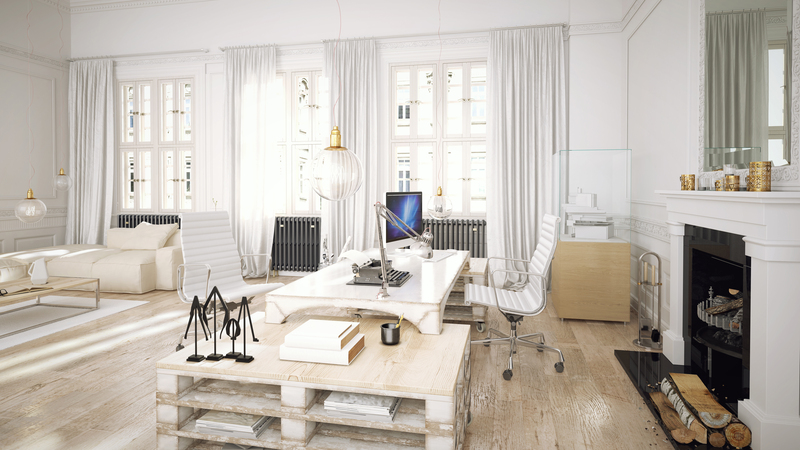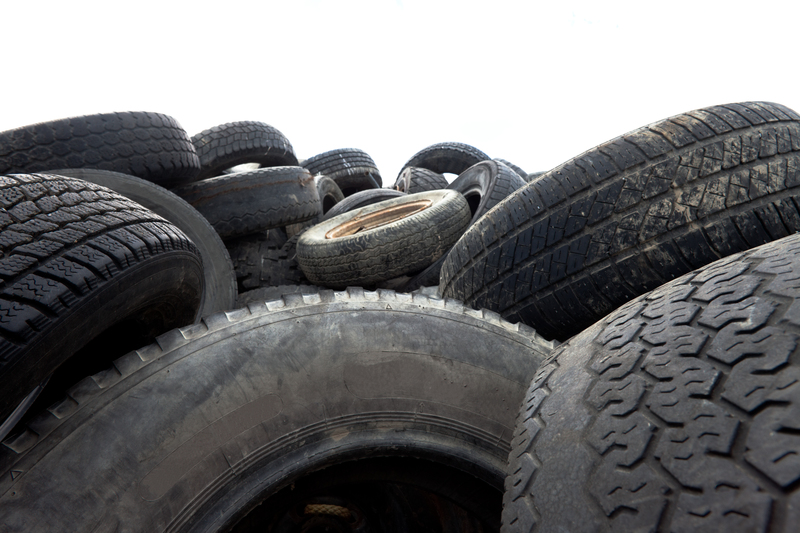Clear the Clutter, Clear Your Path: Effective Removal Tips
Are you overwhelmed by piles of possessions, paperwork, and disorganized spaces? Clutter isn't just a visual nuisance--it can impact your mental clarity, productivity, and even your physical health. Whether you're hoping to reclaim your living room, prepare for a move, or simply find peace in your everyday life, learning how to clear the clutter can be truly transformative. In this comprehensive guide, you'll discover proven and actionable clutter removal tips designed to set you on a clear and productive path. Let's dig in and declutter your space--and your life!
Why Clearing Clutter Matters
It's easy to overlook the toll accumulated items take on our lives. According to studies, cluttered environments can increase stress levels, impede concentration, and even lead to anxiety or sleep disturbance. A tidy home, office, or workspace is about more than aesthetics--it paves the way for improved well-being and enhanced productivity.
Benefits of Decluttering Your Space:- Reduces stress: Clean spaces promote relaxation and peace of mind
- Increases focus: Organizing your physical space can help clear mental 'cobwebs'
- Boosts productivity: Finding what you need quickly saves valuable time
- Enhances safety: Minimizing clutter reduces accident risks at home and in the workplace
- Invites positivity: A peaceful space encourages positive thinking and creativity

Getting Started: Set Your Clutter Removal Goals
Before removing anything, it's crucial to set clear decluttering goals. Ask yourself:
- Which spaces most need to be cleared?
- What are my top priorities--bedroom, kitchen, home office?
- Do I want to declutter in one session, or break it into manageable segments?
Setting intentions keeps you motivated and ensures your decluttering efforts align with your lifestyle needs.
Step-by-Step Clutter Removal Strategies
Effective clutter removal isn't just about tossing things into a box. A thoughtful, systematic approach yields better, longer-lasting results. Here's how to clear your clutter and clear your path:
1. Employ the Four-Box Method
This classic approach makes decision-making easier:
- Keep: Only what you use, love, and need
- Donate/Sell: Items in good condition that don't serve you
- Recycle: Paper, electronics, and items with recyclable materials
- Trash: Broken or unusable items
_Work methodically through your space, room by room, applying this system._
2. Tackle One Area at a Time
Trying to clear an entire house at once is overwhelming. Break tasks into smaller projects--such as a single closet or drawer--and celebrate the victories. Completing areas one by one creates momentum.
3. Practice the "One In, One Out" Rule
To avoid future clutter, commit to only bringing in a new item if you remove an existing one. This not only keeps your belongings in check but makes you think more carefully about new purchases.
4. Utilize Smart Storage Solutions
Some clutter occurs because of inadequate storage. Use:
- Clear bins and labels for visibility and easy sorting
- Vertical storage, such as shelves or hanging organizers
- Under-bed boxes for rarely used items
Choosing the right storage prevents items from piling up and clogging your space.
5. Digitize Where Possible
Piles of paper, receipts, and documents are a major source of visual and mental clutter. Scan important papers, organize them in digital folders, and shred what you no longer need. This minimizes physical storage and simplifies finding information later.
6. Schedule Regular Clutter Checks
Maintaining a clear path requires consistency. Set a monthly or quarterly calendar reminder to review your spaces and address new clutter before it builds again.
Decluttering Hotspots: Room-by-Room Tips
The battle against clutter isn't won in one place alone. Use these tailored tips for the most commonly cluttered areas:
Living Room
- Designate areas for remotes, magazines, and keys
- Use trays or baskets to corral loose items
- Limit decor on surfaces to 1-2 favorite pieces
Kitchen
- Sort pantry and fridge, discarding expired goods
- Group utensils and gadgets by function
- Use drawer dividers and shelf risers for efficiency
Bedroom
- Store out-of-season clothes separately
- Assess bedside tables for essentials only
- Rotate and donate unworn clothing regularly
Home Office
- Implement a filing system for bills and paperwork
- Recycle outdated documents and manuals
- Keep surfaces tidy to foster productivity
Bathroom
- Throw away expired medicine and beauty products
- Install shelving or caddies for daily use
- Contain small items in labeled bins or jars
Common Clutter Traps and How to Avoid Them
Sometimes, knowing what NOT to do is just as important as proper decluttering techniques. Here are some pitfalls to watch for:
- "It Might Be Useful Someday": If an item hasn't found a use in a year, let it go
- Sentimental Storage: Keep only a few, most meaningful mementos and display or store them consciously
- Paper Piling: Open mail daily and address items immediately to prevent accumulation
- Over-organizing: Don't buy organizing supplies for things you don't need to keep
Decluttering Mindset: Emotional Detachment and Motivation
Letting go of belongings can be emotional. Memories, guilt, and "what ifs" may keep you clinging to excess. To fully clear the clutter and clear your path, practice these techniques:
- Ask: "Does this item serve or inspire me?"
- Take photos of sentimental objects before parting with them
- Remember your goals: Focus on the freedom decluttering will bring
- Enlist a support partner or coach for accountability
Each decision to let go creates spaciousness--not just physically, but emotionally.
How to Sustain a Clutter-Free Life
Decluttering isn't a one-time event. To maintain a clear, inviting space:
- Embrace minimalism: Commit to intentional ownership and conscious consumption
- Schedule routine reviews of all rooms to stay ahead
- Share or donate regularly rather than accumulating unused goods
- Adopt daily tidy-up habits for just 10-15 minutes
- Teach family or roommates to respect and uphold your clutter-free vision
With practice, you'll create an environment that supports your well-being, inspires creativity, and sets you on a path to success.
Professional Clutter Removal: When to Call for Help
If your clutter feels unmanageable, or you face specific challenges such as hoarding tendencies or time constraints, it might be time to consult a professional organizer or decluttering service. These experts offer objective advice, practical systems, and hands-on assistance to help you overcome clutter for good.
Consider professional help if:
- You're paralyzed by where to start
- Clutter is affecting your health or safety
- Major life transitions--such as moving or downsizing--demand rapid decluttering
- You need customized storage or organizing solutions
Seeking support is not a failure--it's a proactive step toward living a fulfilled and organized life.
Eco-Friendly Clutter Removal Tips
Clearing clutter doesn't mean contributing to landfills. Choose sustainable removal methods:
- Donate: Offer gently used clothes, books, and furniture to charities and shelters
- Recycle: Electronics, batteries, old cell phones, and certain plastics at local recycling centers
- Sell: Host a garage sale or use online marketplaces for items in good condition
- Upcycle: Repurpose or refresh items to give them a new life and purpose
Responsibly clearing clutter helps your community--and the environment.

Conclusion: Your Path Is Clear--Now Take the First Step
Clear the clutter, and you truly do clear your path--physically and mentally. With these effective clutter removal tips, you're equipped to transform every space, reduce stress, and create a home or office that supports your goals and dreams. Remember, lasting change comes from intention, consistency, and self-compassion.
Start with a single drawer or shelf. Celebrate each win. Your clear, organized, and inspired life awaits!
FAQs: Clear the Clutter, Clear Your Path
- Q: How often should I declutter?
A: Regular, seasonal checks (every 3-4 months) work well for most people. Adjust frequency as needed. - Q: Where should I begin my clutter removal journey?
A: Start with the space that's causing you the most stress or is easiest to tackle for instant motivation. - Q: What if family members aren't on board?
A: Model the behavior, communicate the benefits of cleared space, and invite them to join in ways that feel comfortable. - Q: How do I dispose of hazardous clutter (old electronics, chemicals)?
A: Research local hazardous waste disposal sites or electronic recycling programs for safe removal.
Ready to clear the clutter and clear your path? These practical steps will put you well on your way to an organized, energized, and joyful home or workspace!